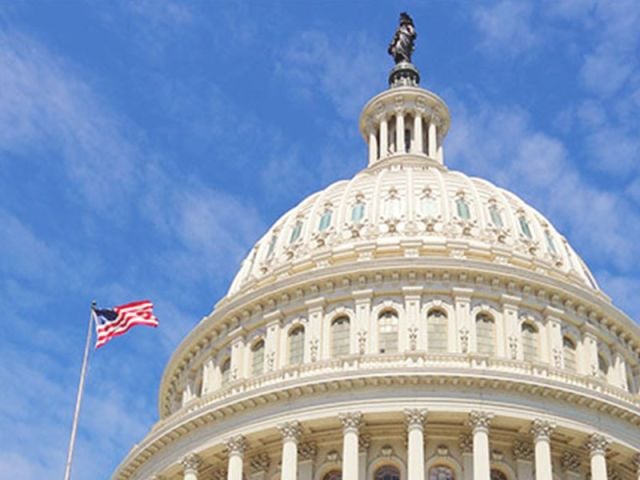This week, EWG released our 15th annual Guide to Sunscreens. For this year’s guide, EWG rated the safety and efficacy of more than 1,800 products that advertise sun protection and found that only 25 percent offer adequate protection and do not contain worrisome ingredients like oxybenzone, a potential hormone-disrupting chemical that is readily absorbed through the skin.
“For 15 years, EWG has warned consumers about the health hazards linked to oxybenzone and other potentially harmful ingredients used in sunscreens,” said Nneka Leiba, EWG vice president of healthy living science. “It’s gratifying to continue to see companies reformulating their SPF products to move away from these concerning ingredients.”
EWG also released an analysis that shows government monitoring is severely lacking for microcystin, the dangerous toxin that can be produced by outbreaks of algae, in waterways in the Upper Midwest.
“Clearly, Iowa, Minnesota and Wisconsin must conduct both more extensive and more regular testing for microcystin, which poses danger to humans, pets and wildlife,” said Anne Schechinger, EWG’s senior economic analyst. “It’s impossible to keep people safe from microcystin if no one knows it’s there.”
On Wednesday, the Duke Energy Accountability Coalition, of which EWG is a member, held their second hearing to shine a light on how the utility greenwashes and delays efforts to address the climate emergency.
And finally, New York’s attorney general Letitia James announced that the state would be opening an investigation into arsenic in baby food from four manufacturers.
Here’s some news you can use going into the weekend.
Children’s health
I Read Labels For You: TB 117-2013: What Does It Mean For You?
According to the U.S. Environmental Protection Agency (EPA), PBDEs are persistent, bioaccumulative, and toxic to humans and the environment (source). In 2003, the Environmental Working Group published a study revealing that breast milk of American mothers contains PBDEs.
2021 Guide to Sunscreens
CNN: Choose the safest sunscreen for your family with this 2021 guide
As you choose your sunscreen for summer fun, be careful to avoid products with harmful chemicals and false advertising claims, according to the 15th Annual Guide to Sunscreens, published by the Environmental Working Group, a consumer organization that advocates for environmental safety.
CNN: 5 Things Newsletter - How to choose the safest sunscreen for your family
After months of lockdown, you definitely want to avoid a face-melting "Raiders of the Lost Ark" moment
If you're in the market for replenishing your SPF stash, the Environmental Working Group has just released its 15th annual sunscreen guide, featuring hundreds of options that have met its criteria.
MindBodyGreen: Just in: The EWG Dropped Their 2021 Sunscreen Guide & Here's What To Know
It seems the Environmental Working Group (EWG) came just in time with their 15th annual guide to sunscreens, where they evaluate over 1,800 SPF products for efficacy, ingredients, and application methods—and we've got the Cliffs Notes.
Newsmax: Only 25 Percent of Sunscreens Offer Safe Protection
The Environmental Working Group released its 15th annual Guide to Sunscreens this week and in the nick of time. A recent poll found that one-third of Americans lack a basic understanding of sun safety and skin cancer. Since May is Skin Cancer Awareness month, it is the perfect time to address how to prevent this cancer that strikes 5 million Americans annually.
Summer is just around the corner, but the days are already getting longer and warmer, which means you've probably been reaching for your bottle of sunscreen more often. If you're in the market for replenishing your SPF stash, the Environmental Working Group has just released its 15th annual sunscreen guide, featuring hundreds of options that have met its criteria.
Tampa Bay Parenting (Tampa Bay, Fl.): Safe in the Sun: EWG releases its 2021 Guide to Sunscreens
The Environmental Working Group released its 15th annual Guide to Sunscreens and the findings are not much better than last year. The EWG tested more than 1,800 sunscreen products and found that three-quarters of them either do not offer adequate protection or contain ingredients they say could be harmful to your health.
Treehugger: EWG's 2021 Guide to Sunscreens Ranks Best Choices
For the past 15 years, the Environmental Working Group (EWG) has released an annual guide to sunscreens, helping people to navigate the overwhelming number of options on the market. A team of experts examines the efficacy and safety of individual products and offers insights into the many claims that appear on sunscreen labels.
KLKN ABC 8 (Lincoln, Neb.): 2021 guide to choosing the safest sunscreen
The 15th Annual Guide to Sunscreens, published by the Environmental Working Group (EWG), a consumer organization that advocates for environmental safety, says that when it comes to choosing the right sunscreen for you, be careful to avoid products that contain harmful chemicals and false advertising claims.
KCRG ABC 9 (Cedar Rapids, Iowa): 2021 ‘Guide to Sunscreens’ lists more than 200 safe sunscreens
The Environmental Working Group released their annual “Guide to Sunscreens,” analyzing more than 1,800 sunscreens to determine how safe they are.
Chlorpyrifos ban
Alternet: A pesticide linked to brain damage in children could finally be banned
"This is what we now know is the modus operandi of Trump and his EPA: corruption couched as policy," said Ken Cook, president of the nonprofit Environmental Working Group, following Pruitt's decision. "Trump and his political appointees at the agency show nearly every day that they are not there to protect Americans' health but to cater to the whims of polluters. If you're looking for evidence of corrupt collusion with sinister interests, here it is in plain view."
Microcystin report
Iowa Capital Dispatch: Environmental group: Iowa needs more tests for algae toxins
The Environmental Working Group analyzed state test results in Iowa, Minnesota and Wisconsin, and checked news reports in an annual assessment. The verdict: More testing is needed, in the nonprofit’s view.
The Storm Lake Times (Iowa): Environmental group says Iowa must improve toxin testing
A report released by Environmental Working Group on Wednesday found all of the beaches the DNR has monitored have registered trace levels of microcystins at least once since 2006.
A new analysis from the Environmental Working Group (EWG) says Iowa needs to monitor more bodies of water for a toxin that’s produced by a microscopic organism called blue-green algae.
Iowa Public Radio: Report Says Iowa Should Do More Monitoring For Algae Toxins
The Iowa Department of Natural Resources currently tests state park beaches for a toxin produced by microscopic organisms that can form algae blooms. But a new analysis by the Environmental Working Group says the state should do more monitoring to protect public health.
Biden’s energy policy
Politico: Midwest farmers look to plow through Biden’s electric-vehicle push
“In the long run, ethanol’s a dead-end fuel,” said Scott Faber, head of government affairs at the Environmental Working Group. In the interim, Faber said, ethanol is still useful while the transportation sector is dependent on gasoline and other liquid fuel.
CAFOs
Toledo Blade (Toledo, Ohio.): Saturday Essay: Cut pollution for a Lake Erie comeback
Smaller operations have no phosphorus application limitations, and since 2005, the greatest growth in animal farms has been in those just below the regulated size. The Environmental Law and Policy Center and Environmental Working Group documented a 40 percent increase in the number of these large-animal operations in the Maumee River watershed from 2005-2018 and the number of animals increased from 9 million-20 million.
Cleaners
NBC News: 15 best eco-friendly cleaning products, according to experts
Reade also mentioned that the Environmental Working Group, a nonprofit activist organization, has a Guide to Healthy Cleaning, which evaluates products and assigns hazard ratings for a variety of cleaners and ingredients. The Environmental Working group verifies cleaning products according to its own standards, too.
Greatist: 5 Environmentally Friendly Ways to Clean Your Kitchen
It’s getting easier to find out what’s in your cleaning products, especially with the EWG’s Guide to Healthy Cleaning. But formulas change, and the info on the site isn’t always updated in a timely manner.
Consumer guides
Everyday Health: 7 Tips to Make Your Eating Habits More Sustainable
The nonprofit Environmental Working Group (EWG), which specializes in research and advocacy on agricultural subsidies, toxic chemicals, and drinking water pollutants, ranks lentils as the No. 1 climate-friendly protein.
Eat This, Not That: The One Hack Everyone Is Trying With Tea
Well known brands are now making bath teas featuring ingredients like green tea and lavender. However, with consumer advocacy organizations like the Environmental Working Group calling out the safety of some ingredients (yes, including in oatmeal): If you want to be totally sure of the ingredients in your bath tea, it could be worth crafting a formula yourself.
Skin Deep® Cosmetics Database
CNN Style: Teens are worried about wrinkles. Here's how Gen Z is helping to fuel a beauty boom
"Before I buy any product, I read every single ingredient," Kennedy said in a phone interview. "Then I'll also run it through a website called the EWG (the Environmental Working Group) which shows you what things rank based on [a number's scale] so one or two, it's really good. Three or four, there are some bad ingredients."
Marie Claire: 10 Natural Toothpastes That Treat Your Pearly Whites Right
Alternative sweeteners like sugar alcohols sorbitol and xylitol are rated safe for non-food uses by the Environmental Working Group, a non-profit advocacy organization.
Chemical and Engineering News: Hyaluronic acid is just getting started
“Consumers have become more educated on the role of the molecular size to deliver specific benefits,” he says. And consumer education efforts such as the nonprofit Environmental Working Group’s Skin Deep database or the newly launched Science of Beauty Collective are making vetted scientific information available.
EWG VERIFIED®: Cosmetics
AARP: 5 Top Food Packaging and Product Labels Decoded
EWG Verified Products are free of what the nonprofit Environmental Working Group considers “chemicals of concern.” Many items are rated at ewg.org/skindeep.
Meat eater's guide
Wellness Letter: Berkeley Wellness: What You Should Know About Tuna
To get a sense of how much tuna and other fish you can eat before exceeding limits set by the government, several advocacy groups provide “mercury calculators.” Here is one from the Environmental Working Group.
Food additives
Mashed: Frozen Desserts You Should And Shouldn't Buy
This one is super processed and gets a 10 out of 10 on the Environmental Working Group's Food Scores scale — with 10 being the worst. It contains "food additives of higher concern," including BHA and ingredients "likely derived from antibiotic-treated animals."
Food and farm workers
Green America Blog: Women Farmworkers Shouldn’t Be Forced to Risk Their Health
The Environmental Working Group estimates women are exposed to 168 different chemical per day through personal care products; while men, on average, are exposed to 85 per day – this number does not factor in pesticide exposure or exposure to cleaning products.
PFAS
NJ Spotlight News: Solvay says no more to replacements for ‘forever chemicals’ at South Jersey plant
Environmental Working Group, a national nonprofit that advocates for PFAS regulation, called Solvay’s announcement “long overdue” but said it lacks specifics on the chemicals it has used, and how the company has evaluated their safety.
Bridge Michigan: Michigan leads nation in PFAS. It will lead cleanups, too, U.S. reps say
PFAS, shorthand for per- and polyfluoroalkyl substances, was used for decades in non-stick and water-resistant household products like Teflon and firefighting foam. The Environmental Working Group, a Washington D.C. nonprofit advocacy group, this month released a report showing that Michigan has 192 PFAS sites, roughly a third of the 610 locations identified nationwide in 43 states.
The Environmental Working Group, which advocates for public health, called the announcement “a long overdue step to eliminate some of the most concerning PFAS compounds.
PFAS Accountability Act: Medical monitoring for PFAS
Currently, only Arizona, California, the District of Columbia, Florida, Massachusetts, Missouri, New Jersey, Pennsylvania, Utah, and West Virginia allow such lawsuits, according to the Environmental Working Group, which advocates for strong regulation of PFAS. In other US jurisdictions, people must wait to file a legal claim until they are sick with a condition related to exposure.
Shopper’s Guide to Pesticides in Produce™
Real Simple: Why Natural Wine Isn't Always the Healthiest (or Tastiest) Option
Weinandy points out that the Environmental Working Group lists grapes sixth on their list of the "Dirty Dozen" produce containing high levels of pesticides.
The Corvallis Advocate (Corvallis, Ore.): The Dirty Dozen and Clean Fifteen of 2021
Since its inception in 1993, Environmental Working Group (EWG) has fought for “consumers’ right to have healthier lives in a healthier environment.” The group is credited with its pivotal role in Congress’ passage of the Food Quality Protection Act of 1995.
Everett Clipper (Everett, Wash.): Loving the Earth on a Budget
Vanderberg mentioned the Environmental Working Group as a good resource for finding clean or dirty products as well as other environmentally helpful tips. They upload a shopper guide every year to suggest what to buy conventionally with no pesticides, and what to buy organic with the most pesticides used in conventional agriculture.
North Central News (Phoenix, Ariz.): Flower Child takes unique approach to Cinco de Mayo
Flower Child aims to offer healthy food including proteins that are raised naturally, without additives and organic produce steered by the wisdom of the Environmental Working Group.
Best Health: 20 Produce Mistakes You Didn’t Know You Were Making
Each year, the nonprofit Environmental Working Group (EWG) releases the Shopper’s Guide to Pesticides in Produce so customers can figure out where to spend extra for organic and which fruits and veggies are safe to buy conventionally grown.
Eat This, Not That: Federal Court Orders the Removal of This Brain-Damaging Pesticide From Foods
According to the Environmental Working Group (EWG), the pesticide is currently licensed for use on nearly 50 food crops, which include fruits, vegetables, nuts, and even milk.
Thrive Market Blog: Organic vs. Non-Organic
Also, not all conventionally grown fruits and veggies have equal amounts of residue. The Environmental Working Group’s Dirty Dozen and Clean Fifteen lists show you which varieties have the most and least residue, respectively. A budget-friendly approach might be shopping conventional for the least pesticide-prone produce and going organic for the rest.
Tap water database
Maine News Online: How Is Maine's Drinking Water Quality?
According to the Environmental Working Group, several Maine municipalities regularly produce drinking water containing high amounts of the compounds dichloroacetic acid and chloroform. The most common cause of these unwanted and potentially harmful chemicals is the overuse of disinfectants when cleaning drinking water—which in turn is often the result of treating water that contains large amounts of organic plant life such as algae and plankton.
The Healthy: What Is Filtered Water and Is It Healthier Than Tap?
If you’re worried about contaminated tap water, Dr. Singh suggests checking your zip code’s water quality on the Environmental Working Group’s website.


